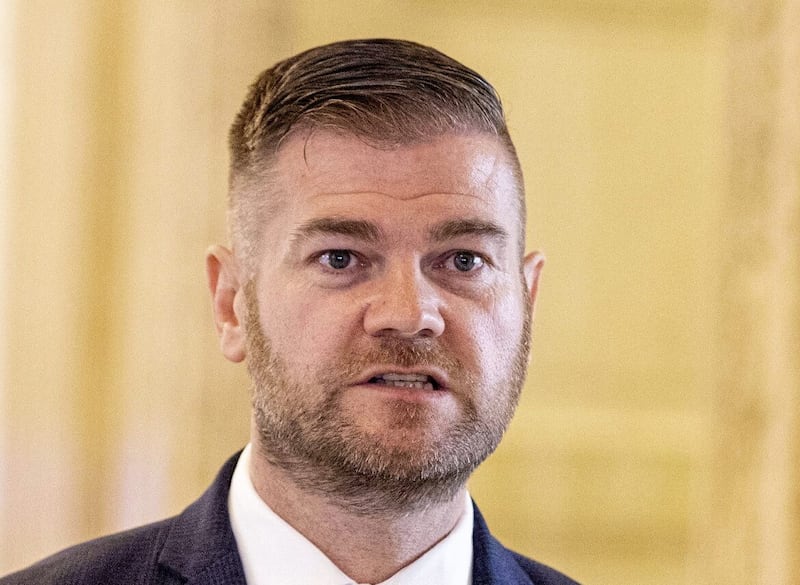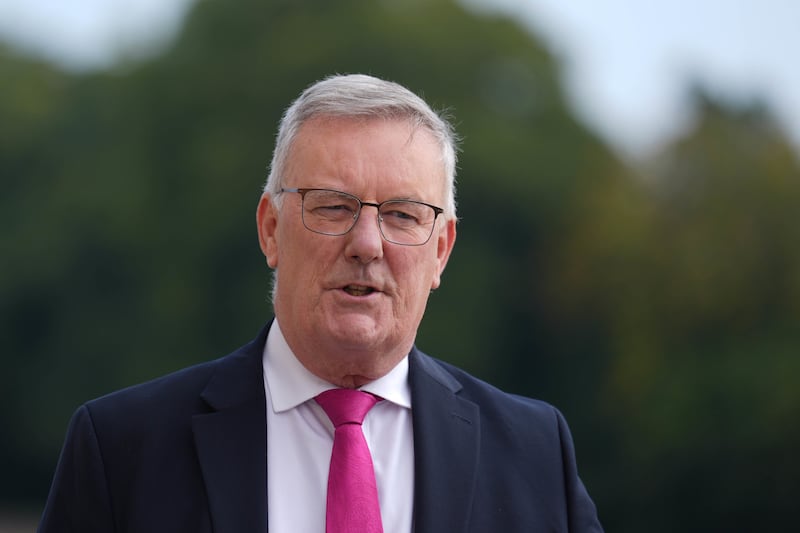The health minister Mike Nebitt has warned next year’s budget will be “highly challenging” without the resources for “everything that needs to be done.”
Providing an update to the Stormont Assembly on Thursday, Mr Nesbitt said that financial pressures on services remained “significant”.
It follows recent talks with health unions and warnings of further strikes over pay.
Mr Nesbitt has already said he will be unable to meet a 5.5% pay uplift for health workers, recommended by an independent pay review body in April.
It means Stormont will break pay parity with workers in England and Wales.
In the October monitoring round, the Executive had allocated an extra £350m for health, but Mr Nesbitt said this still leaves him £100m under budget.
In his latest statement, he said: “It is expected that the budget position for 2025/26 will also be highly challenging for Health and all other parts of the NI public sector.
“We will not have all the resources to do everything we want to do, or indeed everything that needs to be done. “
On the outstanding pay awards, he said he was still working for a “viable solution,” but would need an Executive-wide support.

With “unprecedented” savings of £200m achieved across the health and social care trusts for 2024/25, he said it was not possible to go any further without causing “catastrophic harm.”
“It is important to recognise that the financial position, while still extremely challenging, has eased to some extent since May,” he said.
“Ahead of this year’s NI budget, Department had set out that an extra £1 billion would be needed on top of last year’s opening total, assuming a 3% pay rise.
“A combination of savings and in-year allocations has reduced that figure. However, subsequent recommendations from pay review bodies were well above the 3% assumption, meaning demands on the budget were increased.”
He added that health reform should not only be about cost-saving, with some services requiring upfront funding.
Details of the savings targets for 2024/25 from each of the five health trusts was set out, with common themes of spending less on expensive medical locums and nursing agencies, transport, maintenance works and improved efficiency in domiciliary care.
The targets were; £22m for the Southern Trust, £27.5m for the Western Trust, £29.6m for the Northern Trust, £30.5m for the South Eastern Trust, and £72m for the Belfast Trust.

The SDLP’s Opposition Health spokesperson, Colin McGrath MLA, said the “Executive dysfunction” would leave hospitals facing a difficult winter.
“Blame for this situation lies with the entire Executive, this is typical of the dysfunction that delivers such poor governance for people here,” he said.
“Many of our Ministers seem immune to the notion of collective responsibility, on the rare occasion when things are going well they line up for photos and plaudits, but when things start falling apart it doesn’t take long for the finger pointing to begin.”
He said that the health service in Northern Ireland spends more per head than anywhere in Britain, but a failure to implement health reform had caused the “bleak financial picture”.
“Simply blaming the UK Government doesn’t wash anymore,” he said.
“It will be our underpaid and hardworking health staff and patients who feel the brunt of these cuts this winter. What was already an incredibly difficult situation is set to get even worse. We can’t keep doing nothing and expecting our public services to improve.”









